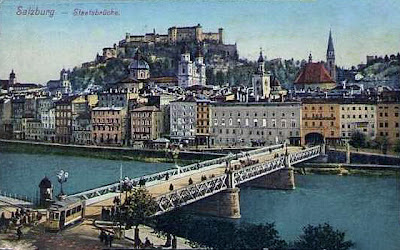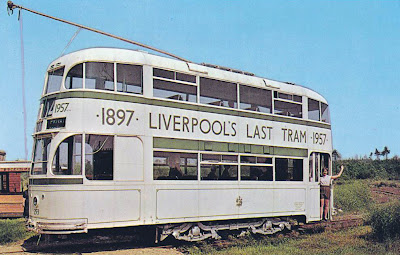Tuesday, July 31, 2012
'On the Road' in the Wellington Film Festival
We mentioned this movie which seems to be a European road movie in an earlier post ... we note it is in the Wellington Film Festival with a positive write up.
Saturday, July 28, 2012
summer holidays
Posts will be less frequent during the next week as those of us in the Northern Hemisphere head into the European Alps for a little Erholung. (ÖBB electric multiple unit, known as the Talent class, yesterday on the Austrian/German border at Scharnitz on the Mittenwaldbahn)
Save TVNZ 7 still active
Obviously the campaign needs a new name ... maybe "Reinstate Public Service TV", but the chances of that don't look good under the present government: from the latest newsletter:-
TVNZ seems to operate in total fear fear of its shareholder (this government who have demanded profits at all costs), fear of its competitors (losing the ratings war) and fear of its audience (as if acknowledging the substantial audience for public service telly would cause an uprising). For me the withdrawal of TVNZ 7 from on-demand perfectly demonstrates TVNZ's failure to provide programmes
for all New Zealanders. Of course this is the
main thrust of our complaint to the Ombudsman. Interestingly, online television website Ziln are currently negotiating with TVNZ to put online all that TVNZ 7 back catalog. They've setup an online public service channel called, wait for it, '7' and are wanting to build on its success with new programmes as well. Link and here Gossip is flying around about other potential public service television options too. Parliament TV, Maori TV, various news websites, TV production companies, regional broadcasters and even SkyTV are rumoured to be thinking of launching a new public service television channel. It's a period of upheaval and hopefully the various groups can be drawn together into a focussed, successful and non-commercial public service.
Friday, July 27, 2012
The 1926 flight of the 'Norge' airship over the Arctic showing Sunday in the Wellington Film Festival
In 1926 Roald Amundsen, Lincoln Ellsworth and Umberto Nobile flew with 13 others in the airship Norge from Ny-Ålesund at Svalbard over the North Pole to Teller in Alaska. Theirs was the first undisputed crossing of the North Pole by air.
It was also the most intensely photographed of polar expeditions, with movie cameras taking in the views from the ground and from on board the airship.
The flight, which originated with airship designer and pilot Nobile in Rome, had been touted as Rome to Nome’ but bad weather forced a landing at the small settlement of Teller just short of Nome. Richard Byrd was encountered en route to and from his subsequently disputed Polar flyover. The Norwegian cameras were there all the way, and all the way home too. Hero’s welcomes await Nobile in Naples and Rome (a medal from Mussolini), and Amundsen, the first person to travel to both poles of the earth, throughout the length of Norway.
This visually stunning record has been little seen in the 85 years since it first thrilled adventure-loving audiences.
In Wellington this silent 99 minute film will have a live pianist.
Thursday, July 26, 2012
Liegnitz Bahnhof then and now -2
We did a post on this former German, now Polish station earlier in the year; here a couple of pics of the front facade, one not long after opening in 1929 and one taken very recently by Geoff Churchman (who comments that a hot dry southerly wind was blowing) showing that the neglect during the communist years of 1945-1989 has still not been addressed by either the PKP (state railways) or the city. The experience inside is the same, very depressing.
Wednesday, July 25, 2012
new Skoda police cars, Pilsen, Czech Republic
With a large Skoda plant in the city, it's no surprise the civic authorities shop there. Although policie looks like the English/French word, the "c" is pronounced 'ts' and the end e is like an é in French. (Geoff Churchman)
Tallinn, Estonia, main train station
A publicity photo issued some time after this replacement station for the original, which suffered in WW2, was opened in 1966.
The original dated from 1870 and was known as the Baltischer Bahnhof (Baltic station).
SNCF triple-voltage electric freight locomotive
 |
| 437052 (the leading 4 indicates it is used by SNCF fret) seen in Thionville. (Geoff Churchman) |
A total of 60 were built from 2004 although one was destroyed in an accident in October 2006.
Length: 19.72 metres (64 ft 8 in)
Locomotive weight: 90 tonnes (89 long tons; 99 short tons)
Top speed: 140 km/h (87 mph)
Power output: 4,200 kW (5,600 hp)
Tuesday, July 24, 2012
former Salzburg trams, Austria
We mentioned in the previous post that Salzburg has had trolleybuses since 1940. That was the year that the previous trams were replaced in three stages. The electric tram system (standard gauge) took over in 1909 from the horse trams and used the relatively high voltage of 1000 V DC. Because the cars were painted yellow instead of the red of the city's Lokalbahn railcars, people spoke of "the Electric Yellow" and even the Rasenden Eierspeis (racing scrambled eggs). The system was only 3.6 km.
Tramcars used were:-
5 from MAN (1 to 5, built 1909)
4 from Maschinen- und Waggonbau Fabriks AG Simmering (6 to 9, built 1912 - 1916)
2 from the Grazer Wagen- und Waggonfabriks AG (10 and 11, built 1926)
The electrical equipment of all power cars came from Siemens. Five trailers (101 to 105, built 1920) came from Simmering. An overhead maintenance tram, not numbered, completed the list. Maximum speed on the system was 20 km/h (12 mph)
Monday, July 23, 2012
new Polish-Czech trolleybuses in Salzburg, Austria
The city's new buses 321-330 are a joint product of Solaris Bus & Coach S.A., Bolechowo-Osiedle (Poland) with electrics from CEGELEC a.s., Prague, and electrical assembly by EKOVA, Ostrava (Czech Republic).
An info pdf (German) here.
Salzburg has had Oberleitungsbus (trolley bus) operations since 1940. Pic taken by Geoff Churchman in Rainerstrasse.
NZ scenic travel train stamps, 1998
Two of the three trains featured here - the Southerner and the Endeavour - no longer run. For much more info, see our books.
Dolny Slask railcar, Poland
One of 9 PESA-Bydgoszcz built railcars, denoted SA135 class and delivered 2008-2011, is seen in the tall Liegnitz station hall (see earlier post).
These are single car versions of the two-car SA134 class and are 390 kW diesel-hydraulic types with a maximum speed of 140 km/h and have 60 second class seats. Dolny Slask = Nieder Schlesien = Lower Silesia. (Geoff Churchman)
Sunday, July 22, 2012
London Underground poster, 1908
"No need to ask a policeman", a gouache by John Hassell (1868-1948); seen in the New York Transit Museum.
Pilsner Urquell 0-6-0 works shunter from 1957
Seen on display at the well-known Pilsner Urquell brewery - one German name that has not disappeared from the scene - in Pilsen. The plate on the cab side states it was made by CSD Sokolovska in Prague. Behind is an old wooden box car with the company's brand advertising on it. The main railway line is nearby. (Geoff Churchman)
 |
| an old French postcard for the "Brasserie Bourgeoise" (Bürgerliches Brauhaus) |
Pilsen trams, Czech Republic
 |
| Ferdinand Strasse obviously dates from before WW1 |
 |
| Ringplatz is now Namesti Republiky |
 |
| two views of the City Theatre which still exists |
 |
| Klattauer Strasse |
 |
| the Adriatic Buffet to the left |
 |
| a postcard from 1964 |
Until 1945 postcards were usually produced in German versions, but that year all German speakers were expelled from Czechoslavakia and all street signs became monolingual.
 |
| Preserved tram number 18, one of 20 delivered in 1899. They had 18.4 kW motors and could accommodate 14 seated passengers and 12 standing. (Geoff Churchman) |
 |
| two connected trams in Sady Petatricatniku in front of the Big Synagogue. You wonder how many of the city's Jews were left to use it after the Nazi period (1939-1945) (Geoff Churchman) |
 |
| A Tatra tram seen in Solni Prazka. (Geoff Churchman) |
 |
| a recent VarioLF Plus tram seen in Prezovska. (Geoff Churchman) |
Saturday, July 21, 2012
Pennsylvania Railroad workshops, Cambridge, Ohio
A hand-tinted postcard, probably from the 1900s. The Union Depot served both the PRR and the B&O, now history.
Wellington Harbour, late 1970s
Long before Te Papa was built. A cruise ship is berthed at the Overseas Passenger Terminal. For lots more, see the books Wellington: a Capital Century and NZ Maritime Images: the Golden Years.
stranded fishing boat
At least that's what it appears to be. Was the girl in the front a crew member who lost her clothes in the incident?
Friday, July 20, 2012
the old Wellington Town Hall and Fire Station
The fire station was replaced by the present Art Deco building at the bottom of Kent Terrace in 1937. The Town Hall still exists minus the portico and tower. For lots more, see the book Wellington: a Capital Century.
Liverpool trams, England
The city of Liverpool built one of Britain's largest tramway systems in the first half of the 20th century but after WW2 it was steadily closed by Steven Joyce types on the council and, as can be seen on the double decker tram, the system came to an end in 1957.
There have been proposals during the last decade for the introduction of a light rail system in the Mersey area but they have not proceeded further. Info on the historic system is on this webpage. See also the earlier post on the Liverpool Overhead Railway.
Subscribe to:
Comments (Atom)





































